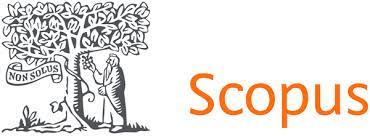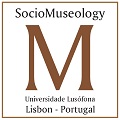Editorial: Critical Interculturality and Sociomuseology PT/EN
Abstract
Editorial: Critical Interculturality and Sociomuseology
There are several subjects dealt with in this new volume of Cadernos de Sociomuseologia. However, it is certain that all articles are deeply rooted in a sociomseological perspective. In a way, they can be understood as contributions to expanding the field of Social Museology, at a time when the new definition of Museum proposed by ICOM at its Prague conference in August 2022 is gaining relevance. This is the unavoidable acknowledgment of the Museum's social responsibility.
“A museum is a not-for-profit, permanent institution in the service of society that researches, collects, conserves, interprets and exhibits tangible and intangible heritage. Open to the public, accessible and inclusive, museums foster diversity and sustainability. They operate and communicate ethically, professionally and with the participation of communities, offering varied experiences for education, enjoyment, reflection and knowledge sharing.”
A new space is thus created for museums to act, which without ceasing to fulfill their curatorial functions can safely advance towards strengthening the dialogical and community dimensions that are at the base of Sociomuseology. This recognition is essential insofar as it is easy to see that in many countries it creates space for new approaches to what we have come to call Museology of resistance. Not only does it highlight the need to think about museology in terms of Human Rights, but it also allows laying the foundations of a museology committed to all forms of sustainability. The contributions included in this volume are framed by the text by Uchoa & Pasqualucci, which highlights the particularities of critical interculturality with decolonial practice and, ultimately, with Freire's "praxis", understood as reflection and action on the world with a view to overcoming historical and contemporary forms of coloniality and oppression. It is about going further than the “European and Anglo-Saxon model, which does not question political and economic power and is compatible with neoliberal logic (functional interculturality), assuming critical interculturality as a political, social, epistemic and ethical project. In this sense, the different contributions that deal with the place of museums during the pandemic, the performance of the "Pontos de Memória" project and its resistance to the dismantling of public cultural policies in the last 4 years in Brazil, the issues of different forms of accessibility, the problems of sustainability, the questions raised by an understanding of the place of ethics and aesthetics in museums. This volume therefore brings together a set of themes that, in addition to their diversity, are found in an approach that contributed to the deepening of Sociomuseology. Finally, the interview with Viviane Conceição Rodrigues “The Museum of Peripheral Culture and its articulations: perspectives of an organic intellectual on Brazilian Sociomuseology” allows us to think about Sociomuseology through the hands of those who live on the border between academia and social militancy. This way of doing museology goes far beyond the past, it is above all a follow-up to the present and the continuous construction of processes in search of a better future (...) With a museology interested in the social and made by the periphery, objects that provoke debates about the dilemmas of today are much more interesting.
Downloads
Authors retain copyright and grant the journal right of first publication with the work simultaneously licensed under aCreative Commons Attribution License that allows others to share the work with an acknowledgement of the work's authorship and initial publication in this journal.













